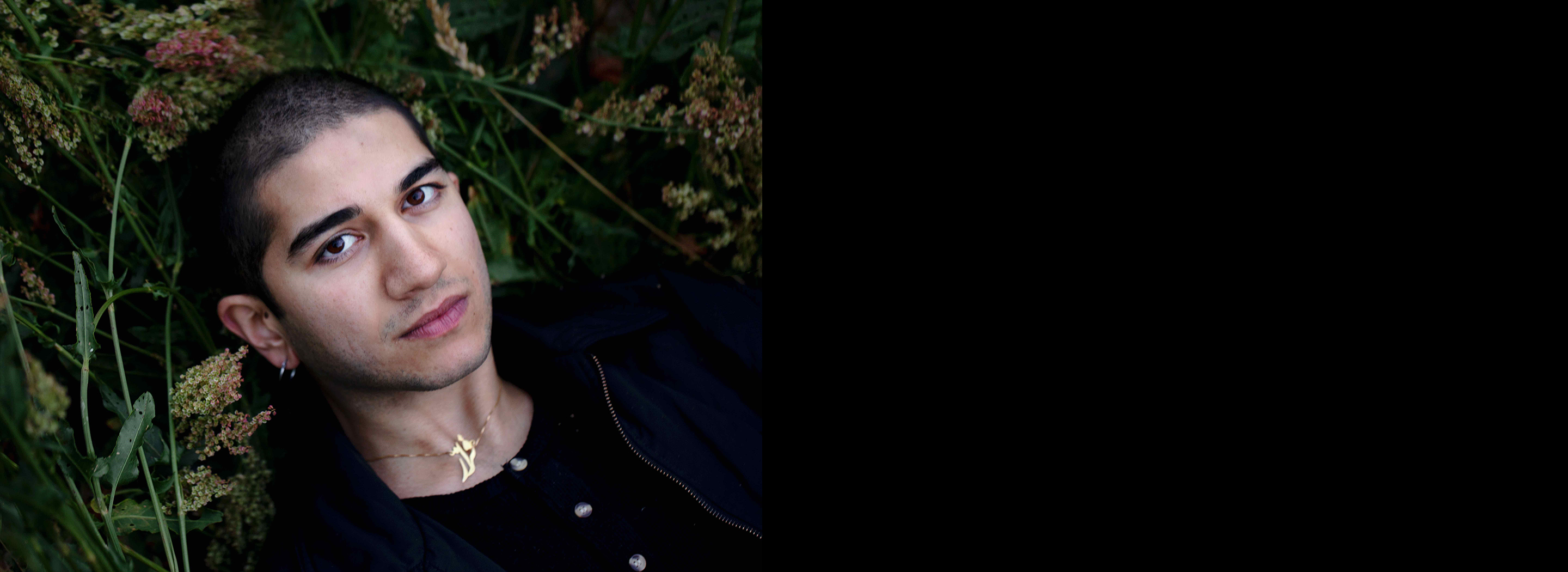A PORTRAIT OF DIRECTOR FARAZ SHARIAT
Faraz Shariat © David UzochukwuThe future of German cinema? Faraz Shariat prefers people not to use such lofty expressions. “To claim that something like that isn’t flattering would be a lie, of course,“ laughs the director, who was born in Cologne in 1994. “And for a distributor, such statements are a real gift, since they can be used to market a film ideally.“ But he does not wish to take on the role of the innovator bringing salvation that was attributed to him recently in the context of his debut film NO HARD FEELINGS.
“I‘m neither the future nor totally alone in the wilderness here; my work is anchored in various traditions and simply building on decades of groundwork,“ he stresses emphatically. “For example, there has been a very active Turkish-German film industry since the first waves of guest workers, and in the nineties, there were cinematic positions already linking queerness and migration. And elsewhere, for a long time the Maxim Gorki Theatre has been doing important work for the German cultural scene by drawing attention to post-migrant perspectives. These past achievements are made to disappear when people say I‘m the first German filmmaker working in that direction.“
In any event, there is no denying that NO HARD FEELINGS, which won the First Steps Award in autumn 2019 and then celebrated its official world premiere at the Berlinale in 2020, caused quite a stir and generated a lot of enthusiasm. The autobiographically inspired story about a young gay man with Iranian roots and a brother and sister who fled from Iran to Germany was impressive, not only for its visually assured realisation. The protagonists also made it an exception in the German film landscape, where queer and/or non-white people are not yet at the focus of enough stories.
Shariat‘s film, realised independently of the usual film school networks after he had studied applied cultural sciences at the University of Hildesheim, struck a nerve. NO HARD FEELINGS not only won the prestigious Teddy Award at the Berlinale: When it was released in Germany in September 2020, it also attracted more than 30,000 viewers in just seven weeks. “Many cinema owners contacted our distributor to say how many young people and non-whites attended the screenings,“ the director recalls. “We really brought an audience into the cinemas that wouldn‘t normally go. And that was in the middle of a pandemic.“
By “we“ Shariat means the collective Jünglinge, which he founded and now runs together with Paulina Lorenz and Raquel Dukpa. Casting, material development, production – in all aspects of filmmaking, the trio and their collaborators are dedicated to perspectives beyond the heterosexist, standardised view, focusing instead on queer, anti-racist themes. Currently, the company sees itself primarily as a label that develops a lot of material and then works together with other production companies. In the long term, however, the aim is to realise projects independently, as well.
One of their role models is Komplizen Film and Maren Ade, who is currently mentoring Shariat. “I‘m very interested right now in how you can manage to maintain your own artistic practice as a director and at the same time work as a producer and set up a production company,“ he summarises. “Maren is an exciting role model in that context.“
Since winning the Teddy for NO HARD FEELINGS, he has been working with a British agency and has introduced himself to dozens of potential clients. At the time of our interview, he was directing three episodes of the new HBO/Sky series THE BABY in London, citing films like GET OUT or PARASITE as inspirations, “super political, but not with a sledgehammer, absolutely entertaining as well“. However, despite some frustrating experiences with presenting bolder ideas and cool genre experiments, this is not intended to signify a turn away from the German market: at the same time, Jünglinge is developing another three series and three feature films.
Patrick Heidmann

